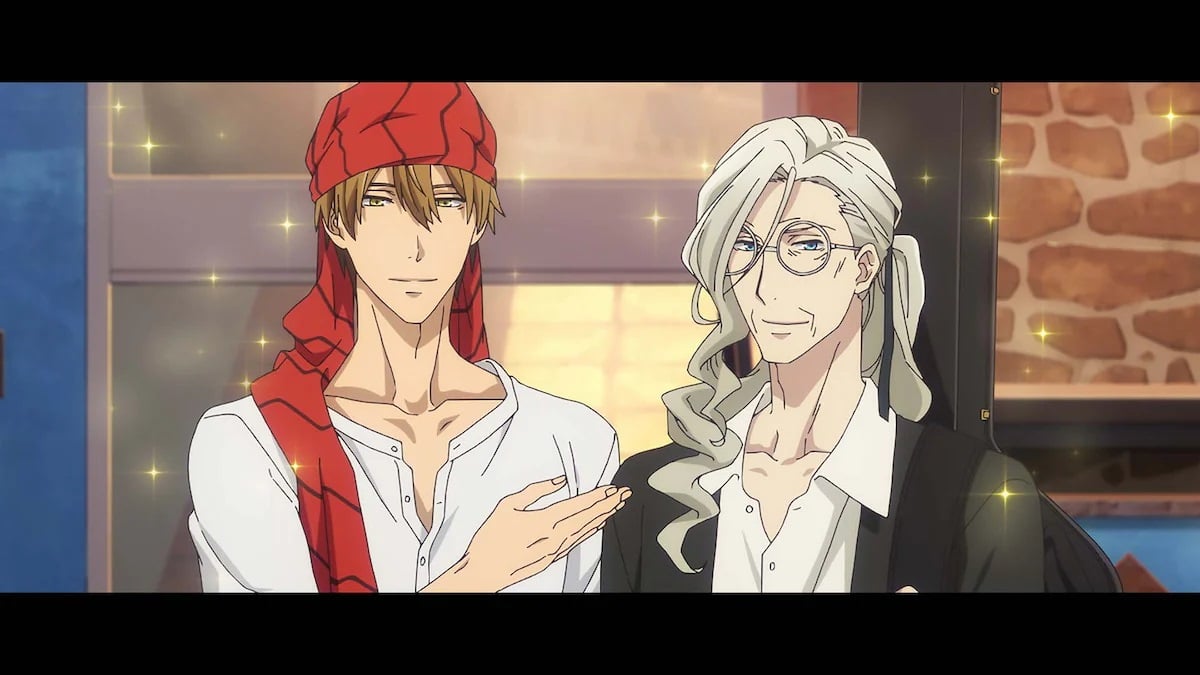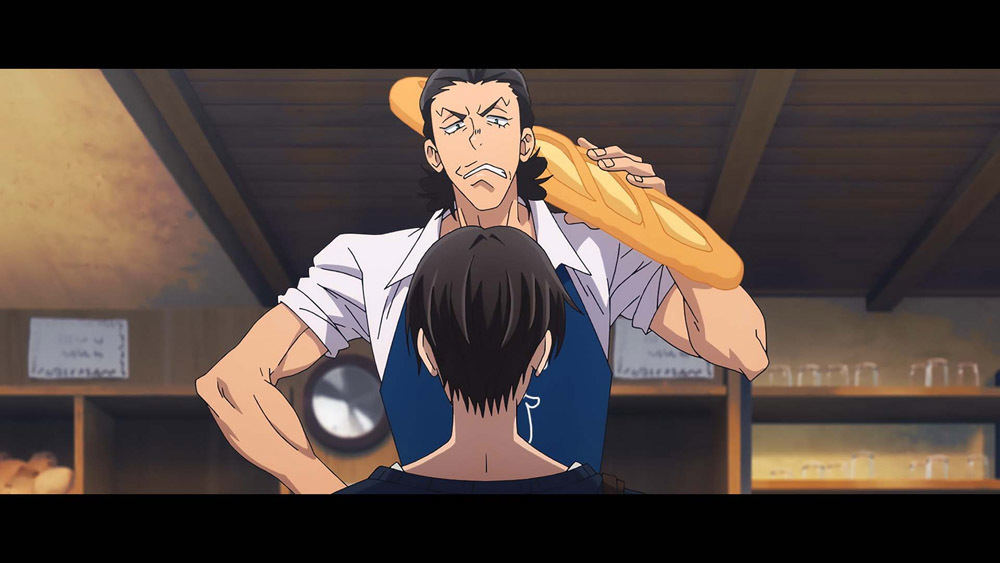Three years since the anime first aired in Japan, the Boy’s Love (BL) series, Dakaichi -I’m Being Harassed by the Sexiest Man of the Year- finally received a new anime adaptation as a feature film. Dakaichi is a series told primarily from the perspective of the story’s fictional famed actor, Takato Saijo. Until recently, he had been the titleholder of #1 Man You’d Like to be Hugged By in Japan for several years. All of that comes to an end when in his 6th year, he places 2nd to the rising actor, Junta Azymaya. At the same time, they both get booked to work on a film together. After a few drinks and spontaneous confessions, their relationship begins with Junta revealing himself to be one horny angel-faced devil.
Creepy as it sounds, their relationship starts off rough but softens quickly and molds to being something rather sweet and genuine. The first season ended with love declarations, rings being exchanged, and promises of a wonderful future together. It all seemed perfect…until now!
With it being one of the best-selling BL series in the world, it should be no surprise that a Dakaichi sequel was bound to happen sooner or later. We were lucky to get to see Dakaichi -I’m Being Harassed by the Sexiest Man of the Year: Spain Arc- on opening day in Japan, and here’s what we thought of it.

Plot
The film’s story is a bit far-fetched for the first half. When Junta and Takato begin working on a new film project together they are instructed to learn Flamenco dancing. Junta takes to it like a fish to water, while Takato sinks like a stone. Enraged and hysterical, he decides to go all the way to Spain and live there for a month in order to soak up Spanish culture and learn to dance flamenco from natives, vowing on arrival to becoming like a real Spaniard.

After a full month, when his time to leave approaches, Takato has actually become quite smitten with Spain, enjoying the local cities, cuisine, and even learning basic Spanish… at least to order his favorite wine at bars. However, he has yet to learn flamenco dancing until a turn of events where his engagement ring is stolen. In a chase to get his ring back, Takato meets an elderly Spanish man who happens to speak fluent Japanese, owns a cafe, and is a well-known local street performer. Eager to learn how to dance from him, Takato follows him back to his cafe where he unexpectedly encounters Junta!
It turns out, the old man is Junta’s biological grandfather, revealing that Junta is one-fourth Spanish, and bilingual in Spanish as well as Japanese. Here the chaos of the movie unfolds as Takato finally beings his sought-after flamenco training and learns more about Junta’s up-bringing.

As hysterical of a setup as it is, what we get out of it is rather endearing and tender. Takato, unlike in the series, starts to show more interest in others, now that the opportunity to really learn and understand his partner is slapping him in the face everywhere he goes. Support characters such as Antonio (his new dance instructor) are colorful and fun, and the background surrounding Junta’s family is great to see, especially with them so openly embracing their grandson’s partner as part of their family.
The plot makes key throwbacks to some of the most iconic moments in the anime, sparing those who either forgot or never saw the TV series. Anyone can enjoy the film’s story.
Animation and Voice Acting
Dakaichi: Spain Arc is a drama anime. So there isn’t much room for dynamic scenes and impressive sequences, but even when those opportunities arise there is little to be awe-struck by. Most dance sequences spend more time on pan shots and close-ups of the audience’s impression and facial reactions than they do of any actual dancing. Frames are reused too often, and motions are stiff. This includes the final dance scene that is meant to be a big send-off and breakthrough moment for Takato. It’s rather disappointing.
As I’ve often said in past reviews of drama anime, the whole magic of animation is the fact that it’s a medium that allows for the imagination to run wild and do things that can’t be achieved with live-action. If the animation staff isn’t going to present anything wild and triumphant then what exactly is the point of making it an anime? Easily what should have been the most critical scenes would immediately be more impressive if shot with trained actors or dancers.

The best moments of Dakaichi: Spain Arc, visually speaking, were the background paintings, of all things. Every piece of scenery, set design, and background was surprisingly vibrant, colorful, and well detailed down to simple things such as wall decor or room furnishing.
Speaking of details, something that was an actual surprise was just how much Spanish was spoken throughout the film. Given that it took place in Spain, by the end of the film it felt like about 30-40% of the film’s dialogue used Japanese subtitles. Although impressive, it still came with a few repercussions.
The main cast and supporting cast had decent pronunciation, good intonation, and natural speaking speed. It was clear they had studied enough to comprehend what they were saying (or at least fool the audience into believing so). However, many of the extras/background characters playing nameless Spanish people were kind of choppy and spoke more like they were just reading necessary phonics off a sheet of paper, written in katakana.
It would have been nice to hear the same level of care given to background voices as much as the main cast, or better yet, have native European-Spanish speakers filling in.
Soundtrack
On a further positive note: the soundtrack was enjoyable, but also a bit predictable. Between the heavy use of acoustic and flamenco guitar and castanets, or the low-beat synth and piano numbers during the sex scenes, the film’s score is well-rounded without any collision of genres. The theme, provided by DEEP SQUAD, is a bit somber, but sweet.
Overall
Dakaichi -I’m Being Harassed by the Sexiest Man of the Year: Spain Arc- maybe have an enjoyable and well-executed story, likable characters, and fun soundtrack, but the lackluster animation really takes its toll on the whole performance. It’ll satisfy long-time fans of the manga and 2018 TV series, but unless you’re curious to see just how well the cast’s Spanish was, there is little reason to watch it, especially if you’ve already read the manga.















